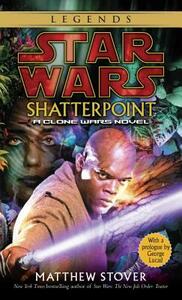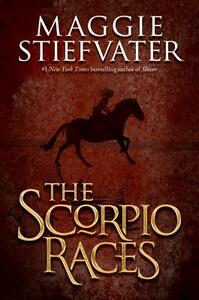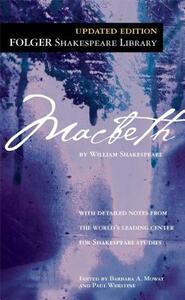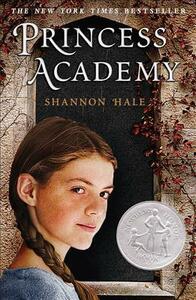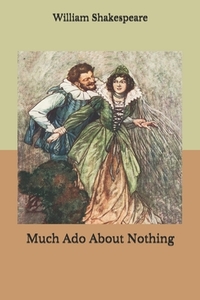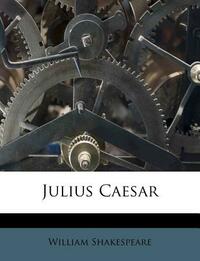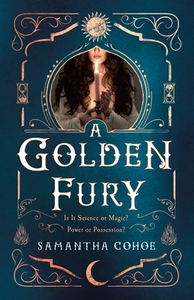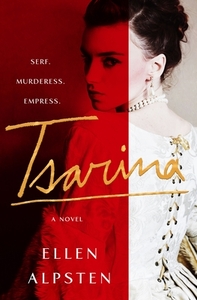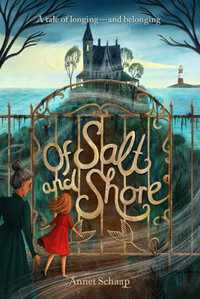Take a photo of a barcode or cover
toggle_fow's Reviews (1.05k)
This book has the high lyrical and emotional quality you'd expect from Stover and, even though it's no longer canon, I believe it's still important. Mace Windu is probably among the least understood in a pantheon of really-badly-understood prequel characters, and this book gets at his heart.
Even without that, since the Star Wars: Rebels TV show and Kanan: The Last Padawan comic series has adapted Depa Billaba's story and made it continuously relevant to emerging canon, I really appreciate the value that still lies in Depa's original storyline.
4/30/2020 Edit: Matthew Stover has a PhD in STRESSING ME OUT.
Obviously the ROTS novelization is far worse, but this book is no walk in the park. There's atrocity! Darkness! Fatalism beyond that of the usual level of Star Wars prequels fatalism! Attempted suicide! War crimes! Death! So much death!
This book takes place in the Legends timeline at the very beginning of the war, and functions as Mace Windu's crash course in the spirituality of warfare. Depa sees that the Jedi way is fundamentally incompatible with winning a war, and is crushed by that knowledge into an avatar of darkness. It's all been overwritten now, which is good for Depa, but this book still provides a huge window into Mace Windu as a person. Where else can you find that?
The good things we have here are a short, but important list:
Even without that, since the Star Wars: Rebels TV show and Kanan: The Last Padawan comic series has adapted Depa Billaba's story and made it continuously relevant to emerging canon, I really appreciate the value that still lies in Depa's original storyline.
4/30/2020 Edit: Matthew Stover has a PhD in STRESSING ME OUT.
Obviously the ROTS novelization is far worse, but this book is no walk in the park. There's atrocity! Darkness! Fatalism beyond that of the usual level of Star Wars prequels fatalism! Attempted suicide! War crimes! Death! So much death!
This book takes place in the Legends timeline at the very beginning of the war, and functions as Mace Windu's crash course in the spirituality of warfare. Depa sees that the Jedi way is fundamentally incompatible with winning a war, and is crushed by that knowledge into an avatar of darkness. It's all been overwritten now, which is good for Depa, but this book still provides a huge window into Mace Windu as a person. Where else can you find that?
The good things we have here are a short, but important list:
• NICK LIVES!!! Honestly, this is the one straw that could have broken the camel's back. He started out kind of annoying, but by the end his constant chatter was the only bright spot in a gruesome horror show. Especially the scene where Mace is trying to narrate to his journal, but Nick keeps interrupting.
• Mace Windu's unflagging, stubborn refusal to give up on the light, even when there are no good choices. He is an expert at taking the trolley problem and single-handedly forging a third track.
• Palpatine: Goodness, who would have known that fighting a war could have had such a detrimental effect on the Jedi?
Mace Windu, sadly: Yes, who could have known?
Yoda, eyes narrowing: Perhaps the most important question of all, that is.
Palpatine: ..............ANYWAY
• Honestly, I love all the completely over-the-top action scenes in this book. Mace defeating three gunships by himself has such Lords of the Sith energy. The semi-final battle is a masterpiece of Jedi devilry. Has anyone but Anakin ever been more OTT?
• All the philosophy is so interesting. The Jedi is altruistic less because to be so is good, than because to be so is safe. There's a lot of exploration of the Jedi mindset and philosophy, and I greedily absorbed all of it. I just wish the conclusion had been more satisfying; Mace's final thoughts don't seem to stand up to the dark premonitions he and Depa both shared about the coming war.
• Mace quoting Jesus made me LAUGH. A prophet receives no honor on his own world, indeed.
The first time I read this, I made a post on social media immediately afterward that just said "SEAN KENDRICK."
So there's that. This time, I'm feeling a little less capslock about it, but I still enjoyed the heck out of this book. Puck is great. I enjoyed her a lot more than most surly heroines. Her emotions feel real, not just like some performance, and her relationships with her brothers are full of understated feeling. So is Puck and Sean Kendrick's partnership.
Everything in this book is full of understated feeling, really, and it's good. Probably my favorite Stiefvater, because the Raven Boys series was a little laborious.
The magic water horses are just creepy enough, and I particularly like the scene during the night when Puck and Finn are hiding in the lean-to, being stalked by a magic fairy horse like you would be stalked by a starving bear. Terrifying. Overall, this is the kind of read that's over quickly because you didn't have the urge to set the book down from start to finish.
So there's that. This time, I'm feeling a little less capslock about it, but I still enjoyed the heck out of this book. Puck is great. I enjoyed her a lot more than most surly heroines. Her emotions feel real, not just like some performance, and her relationships with her brothers are full of understated feeling. So is Puck and Sean Kendrick's partnership.
Everything in this book is full of understated feeling, really, and it's good. Probably my favorite Stiefvater, because the Raven Boys series was a little laborious.
The magic water horses are just creepy enough, and I particularly like the scene during the night when Puck and Finn are hiding in the lean-to, being stalked by a magic fairy horse like you would be stalked by a starving bear. Terrifying. Overall, this is the kind of read that's over quickly because you didn't have the urge to set the book down from start to finish.
This was alright.
I kind of want to leave it at that because that would be funny, but I can't because I have an ax to grind. Overall the play was fine, enjoyable but not wildly so.
The whole woods moving thing made so many references across all of literature make a lot more sense. Macbeth and Lady Macbeth have an extreme Ahab/Jezebel dynamic going on. I was deeply confused by the fact that Banquo's son was still offstage and had shown no sign of becoming king by the end, until I googled it.
Familiar lines:
And now for my ax, which is that Macbeth is told that "no man born of woman" will be able to harm him. This is cool, such as it is, but its execution -- really?
JUST because Macduff did not PASS THROUGH THE BIRTH CANAL does NOT mean he wasn't born of woman. If not woman, then what? Like, because his mom had a C-section, is he born of man? Born of cow, or dog, or the hands that lifted him from his mom's womb? This is ridiculous and makes no sense.
By itself, this is just mildly irritating, but instantly after hearing the prophecy I was expecting a woman to kill him. And what woman do we have waiting in the wings, a proven murderer AND conveniently losing her sanity at that very second? I still think it would have been a better fit for the prophecy and more tragic for Lady Macbeth to kill both Macbeth and herself.
I kind of want to leave it at that because that would be funny, but I can't because I have an ax to grind. Overall the play was fine, enjoyable but not wildly so.
The whole woods moving thing made so many references across all of literature make a lot more sense. Macbeth and Lady Macbeth have an extreme Ahab/Jezebel dynamic going on. I was deeply confused by the fact that Banquo's son was still offstage and had shown no sign of becoming king by the end, until I googled it.
Familiar lines:
• "Screw your courage to the sticking place."
• "Is this a dagger which I see before me?"
• "Sleep that knits up the raveled sleave of care."
• "There's daggers in men's smiles."
• "Something wicked this way comes."
• "What, you egg!"
• "Double, double, toil and trouble / fire burn and cauldron bubble."
And now for my ax, which is that Macbeth is told that "no man born of woman" will be able to harm him. This is cool, such as it is, but its execution -- really?
JUST because Macduff did not PASS THROUGH THE BIRTH CANAL does NOT mean he wasn't born of woman. If not woman, then what? Like, because his mom had a C-section, is he born of man? Born of cow, or dog, or the hands that lifted him from his mom's womb? This is ridiculous and makes no sense.
By itself, this is just mildly irritating, but instantly after hearing the prophecy I was expecting a woman to kill him. And what woman do we have waiting in the wings, a proven murderer AND conveniently losing her sanity at that very second? I still think it would have been a better fit for the prophecy and more tragic for Lady Macbeth to kill both Macbeth and herself.
You know what? This slaps.
I read this book over and over as a kid, and it left such an imprint that more than a decade later I could have recited to you the entire plot. It holds up. It did seem like a breeze to read this time, a lot shorter than I remember, but still.
The quarry-speak? The sisterhood? The moment when the girls give each other test answers sitting out on the mountain hillside? Miri's economic coup de grace? The entire b-plot of the bandit attack? Britta's secret identity? There's so much here crammed into an hour-long read and I enjoyed the heck out of it.
I read this book over and over as a kid, and it left such an imprint that more than a decade later I could have recited to you the entire plot. It holds up. It did seem like a breeze to read this time, a lot shorter than I remember, but still.
The quarry-speak? The sisterhood? The moment when the girls give each other test answers sitting out on the mountain hillside? Miri's economic coup de grace? The entire b-plot of the bandit attack? Britta's secret identity? There's so much here crammed into an hour-long read and I enjoyed the heck out of it.
VERY funny. Probably my favorite Shakespeare.
Familiar lines:
• "I would eat his heart in the marketplace."
Familiar lines:
• "I would eat his heart in the marketplace."
Starts kind of slow, boring, and ponderous, but picks up in the middle.
I remember reading this as a young teenager and being COMPLETELY boggled. Understood maybe half of it. Now, it seems incredibly simple and I'm not sure what the problem was for teenage me.
My favorite part is Mark Antony's funeral oration. The absolute mindless fickleness of the crowd and Antony's constant ironic repetitions of "for Brutus is an honorable man" strike a very humorous and compelling tone. Also, I got to meet Messala, who was undoubtedly the ancestor of Messala from Ben-Hur.
Familiar lines:
• "Beware the Ides of March."
• "The fault is not in our stars, but in ourselves."
• "Yon Cassius has a lean and hungry look. He thinks too much; such men are dangerous."
• "It was Greek to me."
• "Cowards die many times before their deaths; the valiant never taste of death but once."
• "Cry 'Havoc!' and let slip the dogs of war."
• "Friends, Romans, countrymen, lend me your ears."
I remember reading this as a young teenager and being COMPLETELY boggled. Understood maybe half of it. Now, it seems incredibly simple and I'm not sure what the problem was for teenage me.
My favorite part is Mark Antony's funeral oration. The absolute mindless fickleness of the crowd and Antony's constant ironic repetitions of "for Brutus is an honorable man" strike a very humorous and compelling tone. Also, I got to meet Messala, who was undoubtedly the ancestor of Messala from Ben-Hur.
Familiar lines:
• "Beware the Ides of March."
• "The fault is not in our stars, but in ourselves."
• "Yon Cassius has a lean and hungry look. He thinks too much; such men are dangerous."
• "It was Greek to me."
• "Cowards die many times before their deaths; the valiant never taste of death but once."
• "Cry 'Havoc!' and let slip the dogs of war."
• "Friends, Romans, countrymen, lend me your ears."
This was pretty good. I would give it a 3.5 if I could.
Alchemy in general is an intriguing concept, and Thea was a dynamic, complex character. The motivations of her own ambition and her conflicting desires to both eclipse her mother and earn her mother's love were interesting.
I didn't LOVE any of the characters, really, but there's a lot to like.
There was a love plot, kind of, but most of the time Thea is seeing everyone around her as either friends or enemies, and she ends up still single at the end. I can easily imagine how it might have been done terribly, especially with everything hinging on Will's betrayal, so I'm grateful for how matter-of-fact and lowkey everything was handled. Dominic really got the short end of the stick, being trapped in madness for such a long time and also used as a diversion at the risk of his life.
The Philosopher's Stone Also I was a big fan of Thea's dynamic with her father, who initially gave in to his greed but turned out to be a nice and sincere person who I liked a lot. It was great that even after his change of heart he still took a background role, supporting her.
Alchemy in general is an intriguing concept, and Thea was a dynamic, complex character. The motivations of her own ambition and her conflicting desires to both eclipse her mother and earn her mother's love were interesting.
I didn't LOVE any of the characters, really, but there's a lot to like.
There was a love plot, kind of, but most of the time Thea is seeing everyone around her as either friends or enemies, and she ends up still single at the end. I can easily imagine how it might have been done terribly, especially with everything hinging on Will's betrayal, so I'm grateful for how matter-of-fact and lowkey everything was handled. Dominic really got the short end of the stick, being trapped in madness for such a long time and also used as a diversion at the risk of his life.
The Philosopher's Stone
Spoiler
as some sentient, malevolent being from another plane of existence was interesting.
The only word to describe this book is gratuitous.
Marta is a peasant girl who, through various horrible circumstances, goes on to become the wife of Peter the Great, Tsar of Russia, and eventually rule Russia herself as Catherine the First after Peter dies. Now, as you would expect, the life of an Eastern European serf is not awesome. As a teenager, Marta is sold to a passing Russian for a silver coin, and things just get worse from there.
I almost want to thank this book, at least, for the things I learned. I learned that Catherine the Great was Catherine the Second, and that another Catherine ruled before her. I learned things about Peter the Great that I will never forget. But was the damage worth the few historical details I will carry away with me? Almost certainly not.
This book has nothing to offer but rape, murder, more rape, orgies, drunken debauchery, incest, torture, more rape, pregnancies, and an infinite amount of awkward sex scenes, all presented with enough NC-17 explicit detail to make you want to gouge your eyes out. If you took out all the time Catherine spends being pregnant, giving birth, and engaging in various sexual encounters both willingly and unwillingly, there would be about enough information left to form a Wikipedia page of moderate length.
I genuinely wish I hadn't read this book. Obviously a life such as Catherine's wouldn't have been all roses -- it would be unrealistic to whitewash it -- but I don't need to go through each rape with her in horrible technicolor. Would she want to be remembered for that? Wallowing in so much human misery for simple entertainment is just painful and vulgar and disgusting and gratuitous.
Marta is a peasant girl who, through various horrible circumstances, goes on to become the wife of Peter the Great, Tsar of Russia, and eventually rule Russia herself as Catherine the First after Peter dies. Now, as you would expect, the life of an Eastern European serf is not awesome. As a teenager, Marta is sold to a passing Russian for a silver coin, and things just get worse from there.
I almost want to thank this book, at least, for the things I learned. I learned that Catherine the Great was Catherine the Second, and that another Catherine ruled before her. I learned things about Peter the Great that I will never forget. But was the damage worth the few historical details I will carry away with me? Almost certainly not.
This book has nothing to offer but rape, murder, more rape, orgies, drunken debauchery, incest, torture, more rape, pregnancies, and an infinite amount of awkward sex scenes, all presented with enough NC-17 explicit detail to make you want to gouge your eyes out. If you took out all the time Catherine spends being pregnant, giving birth, and engaging in various sexual encounters both willingly and unwillingly, there would be about enough information left to form a Wikipedia page of moderate length.
I genuinely wish I hadn't read this book. Obviously a life such as Catherine's wouldn't have been all roses -- it would be unrealistic to whitewash it -- but I don't need to go through each rape with her in horrible technicolor. Would she want to be remembered for that? Wallowing in so much human misery for simple entertainment is just painful and vulgar and disgusting and gratuitous.
I am... torn.
As you may gather from the title, this book is not subtle. It's all about turning a popular narrative on its head, and that popular narrative is The Princess Bride.
I did not realize this until about sixty percent through the book. Up until that point, Amarande was just a sixteen-year-old princess in the process of figuring out just how unprepared she was for the job of taking her late father's throne. She's one of those "I'm ruthless, I'm a devastating warrior, I've been training from birth to sword-fight and throw knives and never trust anyone" heroines who also, somehow, has never hurt anyone in a real fight and seemingly never even been camping.
The stable boy, her childhood friend and crush, is kidnapped by three somewhat hapless ruffians in a plot by an evil prince to seize power. Since I clued you in beforehand, you can already see The Princess Bride shaping up, although I didn't quite yet. Amarande manages to race after the ruffians and rescue the stable boy, and this is where it gets really overt.
They run into the prince. "Marry me, and I promise not to hurt him."
She agrees. Obviously, it was a lie.
From here on out, we have the thinly-disguised outline of The Princess Bride itself:
There's some background intrigue with unknown identities and mysterious mothers and what, exactly, the late king had in mind in the first place that is honestly the most interesting part of the book. I assume that, along with some Dread Pirate Roberts action, awaits in part two of the duology. I'm hopeful that it will come off better than this one.
There is some subversion that I think is fun. The extent to which Luca is a fainting damsel with no personality except being unfailingly kind and handsome, and loving Amarande with stars in his eyes is nice. You can't help but like him, and I think he plays the part of Buttercup very well. It's too bad he had to get the torture side of the stick as WELL as the kidnapping side.
The problem is that Amarande is not nearly as good a Westley. She is a struggle, in general. The contrast between her hard-bitten thoughts and the way her mishaps actually turn out in real life is one that's hard to respect. She basically still is Buttercup as well, except for the fact that she will wave a sharp weapon at anyone nearby if given half an excuse, and more in a wearying "please stop and think about the consequences of your actions for ONCE" way rather than a fun action-hero way.
Still, more than halfway through this book I was still planning to give it three stars. Like, Amarande is annoying but she's not THAT annoying. It's still a fun story. Until... the pit of despair scene. There's "inspired by" and then there's whatever this is. The "fire swamp" shoutout could have been a fun wink-nudge reference, but not in the MIDDLE of a scene which LITERALLY copies dialogue from the original. The word-for-word was too much, way too heavy-handed, in a book that didn't offer much else of its own unique content to balance it out.
As you may gather from the title, this book is not subtle. It's all about turning a popular narrative on its head, and that popular narrative is The Princess Bride.
I did not realize this until about sixty percent through the book. Up until that point, Amarande was just a sixteen-year-old princess in the process of figuring out just how unprepared she was for the job of taking her late father's throne. She's one of those "I'm ruthless, I'm a devastating warrior, I've been training from birth to sword-fight and throw knives and never trust anyone" heroines who also, somehow, has never hurt anyone in a real fight and seemingly never even been camping.
The stable boy, her childhood friend and crush, is kidnapped by three somewhat hapless ruffians in a plot by an evil prince to seize power. Since I clued you in beforehand, you can already see The Princess Bride shaping up, although I didn't quite yet. Amarande manages to race after the ruffians and rescue the stable boy, and this is where it gets really overt.
They run into the prince. "Marry me, and I promise not to hurt him."
She agrees. Obviously, it was a lie.
From here on out, we have the thinly-disguised outline of The Princess Bride itself:
• A girl harangues Amarande about marrying another while her true love lives
• Both Luca and Amarande, who didn't even know if the other like-liked each other before the kidnapping, now can't stop talking about TRUUUUE LOOOVE
• A single dagger meant for the wedding night
• A poisonous drug named "fire swamp" (Ho! Ho! Get it?)
• "Mostly dead"
• A literal pit of despair where the "How does that make you feel?" scene is nearly word-for-word reenacted
• The two "good" ruffians hear Luca's tortured scream and instantly know it's him, coming to the rescue
• "If he dies, you die." (Okay, this one is actually from The Court Jester.)
There's some background intrigue with unknown identities and mysterious mothers and what, exactly, the late king had in mind in the first place that is honestly the most interesting part of the book. I assume that, along with some Dread Pirate Roberts action, awaits in part two of the duology. I'm hopeful that it will come off better than this one.
There is some subversion that I think is fun. The extent to which Luca is a fainting damsel with no personality except being unfailingly kind and handsome, and loving Amarande with stars in his eyes is nice. You can't help but like him, and I think he plays the part of Buttercup very well. It's too bad he had to get the torture side of the stick as WELL as the kidnapping side.
The problem is that Amarande is not nearly as good a Westley. She is a struggle, in general. The contrast between her hard-bitten thoughts and the way her mishaps actually turn out in real life is one that's hard to respect. She basically still is Buttercup as well, except for the fact that she will wave a sharp weapon at anyone nearby if given half an excuse, and more in a wearying "please stop and think about the consequences of your actions for ONCE" way rather than a fun action-hero way.
Still, more than halfway through this book I was still planning to give it three stars. Like, Amarande is annoying but she's not THAT annoying. It's still a fun story. Until... the pit of despair scene. There's "inspired by" and then there's whatever this is. The "fire swamp" shoutout could have been a fun wink-nudge reference, but not in the MIDDLE of a scene which LITERALLY copies dialogue from the original. The word-for-word was too much, way too heavy-handed, in a book that didn't offer much else of its own unique content to balance it out.
This was billed as an old-fashioned fairy tale, and I think it did quite well at living up to that label.
Lampie is a lighthouse keeper's daughter when disaster strikes and she's sent away to work in an admiral's big old haunted house. The situation between her and Edward, the admiral's son, reminds me almost of The Secret Garden, if Colin's lameness had been caused by being a half-merman. Overall, pretty cute and very enjoyable.
Lampie is a lighthouse keeper's daughter when disaster strikes and she's sent away to work in an admiral's big old haunted house. The situation between her and Edward, the admiral's son, reminds me almost of The Secret Garden, if Colin's lameness had been caused by being a half-merman. Overall, pretty cute and very enjoyable.
